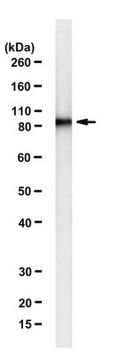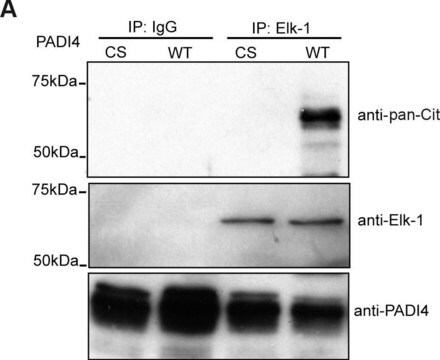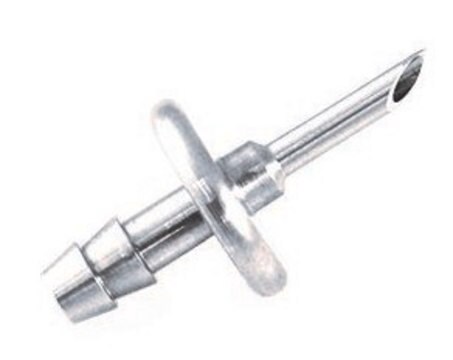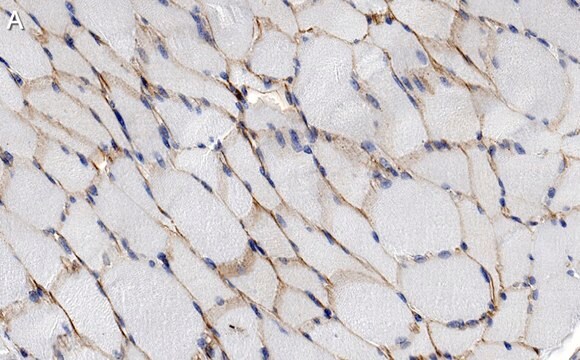MABF3220
Anti- HPV16 Antibody, clone H16.V5

Sinónimos:
HPV-16, Major capsid protein L1
About This Item
Productos recomendados
biological source
mouse
Quality Level
antibody form
purified antibody
antibody product type
primary antibodies
clone
H16.V5, monoclonal
mol wt
calculated mol wt 56.3 kDa
observed mol wt ~N/A kDa
purified by
using protein G
species reactivity
virus
packaging
antibody small pack of 100
technique(s)
ELISA: suitable
neutralization: suitable
isotype
IgG2bκ
Protein ID accession no.
UniProt accession no.
storage temp.
-10 to -25°C
Gene Information
vaccinia virus ... L1(1489082)
Specificity
Immunogen
Application
Isotype testing: Identity Confirmation by Isotyping Test.
Isotyping Analysis: The identity of this monoclonal antibody is confirmed by isotyping test to be mouse IgG2b .
Tested Applications
ELISA Analysis: A representative lot of this antibody detected HPV16 protein in ELISA application (Data by Dr. J. Leitsch and with kind permission of ARTES Biotechnology GmbH, Germany. Recombinant HPV L1 antigens used were produced by ARTES Biotechnology GmbH).
Neutralizing: A representative lot detected HPV16 in Neutralizing application (Christensen, N.D., et al. (1996). Virology. 223(1):174-84; McClements, W.L., et al. (Virology). 289(2):262-8; Dias, D., et al. (2005). Clin Diagn Lab Immunol. 12(8):959-69; Smith, J.F., et al. (2008). Hum Vaccin. 4(2):134-42; Jerajani, K., et al. (2022). J Pharm Sci. 111(11):2983-2997).
ELISA Analysis: A representative lot detected HPV16 in ELISA application (Christensen, N.D., et al. (1996). Virology. 223(1):174-84; McClements, W.L., et al. (Virology). 289(2):262-8; Smith, J.F., et al. (2008). Hum Vaccin. 4(2):134-42; Panicker, G., et al. (2021). J Immunol Methods. 498:113136; Jerajani, K., et al. (2022). J Pharm Sci. 111(11):2983-2997).
Note: Actual optimal working dilutions must be determined by end user as specimens, and experimental conditions may vary with the end user.
Target description
Physical form
Reconstitution
Storage and Stability
Other Notes
Disclaimer
¿No encuentra el producto adecuado?
Pruebe nuestro Herramienta de selección de productos.
Storage Class
12 - Non Combustible Liquids
wgk_germany
WGK 2
flash_point_f
Not applicable
flash_point_c
Not applicable
Certificados de análisis (COA)
Busque Certificados de análisis (COA) introduciendo el número de lote del producto. Los números de lote se encuentran en la etiqueta del producto después de las palabras «Lot» o «Batch»
¿Ya tiene este producto?
Encuentre la documentación para los productos que ha comprado recientemente en la Biblioteca de documentos.
Nuestro equipo de científicos tiene experiencia en todas las áreas de investigación: Ciencias de la vida, Ciencia de los materiales, Síntesis química, Cromatografía, Analítica y muchas otras.
Póngase en contacto con el Servicio técnico







